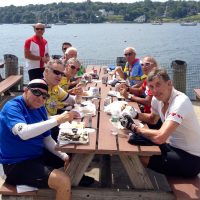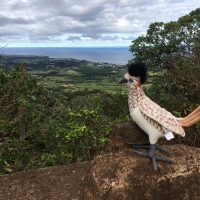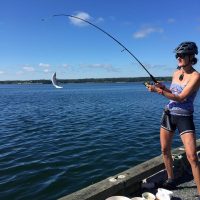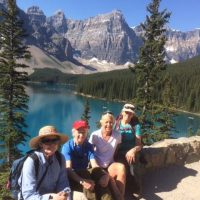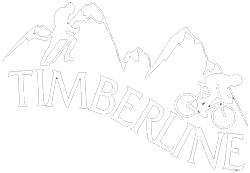TOUR HEALTH PRECAUTIONS:
Through our experience with the recent pandemic, we have found some of our additional procedures to have a benefit for everyone on the tour, and will therefore be keeping them in place as we navigate beyond the pandemic. We highly recommend you receive the recommended course of COVID 19 vaccines, as well as the seasonal flu and TDAP vaccines before participating in a Timberline Adventures tour. At all times on tour, be respectful of other guests by keeping hands clean, being careful not to distribute bodily fluids and allowing plenty of personal space. Always have a mask on hand when its use is required, recommended, or for your personal safety.
See our complete policies on reducing the risks of infectious diseases HERE:
HOW TO PREPARE FOR THE WEATHER
Weather in Northern California
Additional Resources
Personalize your training with Timberline Adventures’s partner Becki Rupp at Trailblazer Wellness.
Becky is a personal trainer and adventure coach and can help you prepare physically and mentally for your upcoming trip. She uses her fitness knowledge, as well as experience as a former wilderness search and rescue volunteer and frequent traveler, to create personalized training plans: Contact Becki for a free 30-minute trip prep initial consultation. Timberline Adventures customers receive a 10% discount! Use Code: TLA
becki@trailblazerwellness.com 720-308-8000
What to bring for a cycling tour:
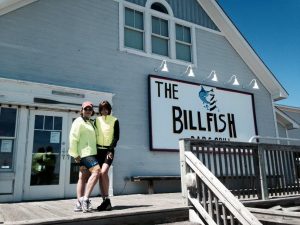
The preference always is to bring your own helmet for comfort and fit. If you cannot transport your helmet, contact us and indicate your desire that we provide a helmet for you and we’ll be happy to do so without charge. The following is a partial list of recommended articles
*shorts (comfortable for riding)
*t-shirts or jerseys (both long and short sleeved)
*shoes for cycling (can be a touring shoe, cleated shoe or tennis shoe)
*rain jacket and rain pants (pants are optional but recommended)
*sweater (wool or synthetic, not cotton), light jacket
*warm-up pants, tights or some other form of leg covering
*hiking shoes (particularly for tours that include planned hiking days)
*leisure clothing (for after cycling hours) Informal, casual, comfortable clothing is the rule – e.g. jeans, shorts, etc. Keep in mind that evenings can be quite cool.
*binoculars (great means of viewing wildlife)
Personal Articles
- sun glasses
- sun screen (SPF-15)
- lip protection (SPF-15)
- camera
- binoculars (great means of viewing wildlife)
- daypack (for hiking)
- National Parks pass – if you have a pass, bring it along
Equipment
Your bicycle should be a recently tuned-up model in good working order and outfitted for touring. If you don’t have a suitable bicycle or do not wish to transport your bicycle, we can provide a rental for the tour for a fee. Timberline is a Specialized Dealer, and our bikes are outfitted for touring, with alpine gearing, with a low gear in the range of 30”-36”, rear pannier rack and rack top bag, pump, tire irons, spare tube, patch kit, toe clips and straps, or equivalent (clipless pedals). You are welcome to bring your pedals and seat if desired.
Tools and other gear
Our leaders will be riding with a full complement of tools to handle most repairs. Our support vehicle will also carry a wide array of tools and a supply of commonly required spare parts (tubes, tires, brake pads, brake and derailleur cables, etc.). If, however, your bike is other than a conventional model (e.g., tandem, recumbent, wheels that are other than 700c) you will need to bring spare tubes, at least one spare tire, and derailleur and brake cables. We also do not carry Campagnolo spare parts in our vans., but we are aware of the location of bike shops along our routes. If you have any question as to whether we will have the necessary repair parts and equipment for your personal bike, we urge you to contact our office for clarification.
If you require specialized nutrition needs for snacking or other, you are welcome to bring along a supply which we can carry in the van for you.
What to pack for hiking tours:
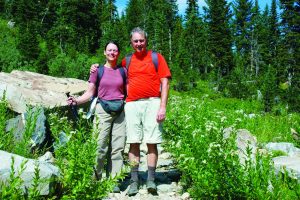
Water carrying capacity is vital, and your daypack may be equipped to carry water containers. Other options are a fanny-pack water bottle carrier or a camelback style pack that has both a water bladder (at least 64-ounce capacity) and a separate compartment to carry needed personal belongings. A word about the most important part of your anatomy on a hiking program—your feet! We strongly recommend that you opt to hike in hiking boots or shoes, rather than sneakers or running shoes, which do not provide sufficient support and traction for trail conditions that we will experience. And please, do not show up with a brand new pair of boots that you will be wearing for the first time—be sure in advance that those boots have been “broken-in”, and are a comfortable fit (be aware that a comfortable, snug fit in the store can become agonizingly too tight as your feet swell in the course of an actual hike). Brand new boots can transform a magnificent trek into an excruciating nightmare in an amazingly short period of time. Bring an ample supply of moleskin along to apply to those traditional “hot spots” before they ever become “hot”. We will be equipped to introduce you to the miracle of duct tape.
Clothing recommendations:
- Hiking boots and socks (multiple sock layers are discouraged)
- Hiking pants, shorts or zip offs
- Short sleeve T-shirts or synthetic wicking material shirt
- Long sleeve T-shirts (evenings and cool mornings, even for Southwest programs)
- Jacket (fleece, e.g.), sweater or sweatshirt (for warmth)
- Leg tights, warm-up pants
- Rain gear
Hat or other head covering (sun hat and warm hat for higher elevation hiking) - Gloves – lightweight for some cold mornings
- Leisure clothing, including comfortable shoes for evenings (informal, casual and
comfortable is the rule – evenings can be cool to cold) - Swimsuit (always)
- Casual shoes like Tevas, Crocs, or sandals
Personal Articles:
- Daypack, comfortable, but big enough for food, water and clothing
- Water containers or bladder, minimum 2 quart capacity, more in dryer climates
- Sun glasses; Sunscreen and lip protection
- Camera, binoculars
- Moleskin, personal medication and small personal first aid kit (gel plasters like Compeed for blisters can be very helpful)
- If you require specialized nutrition needs for snacking or other, you are welcome to bring along a supply which we can carry in the van for you.
- Hiking (Trekking) poles can be very useful for stability and saving your knees
- National Parks Pass – if you have one, bring it along


